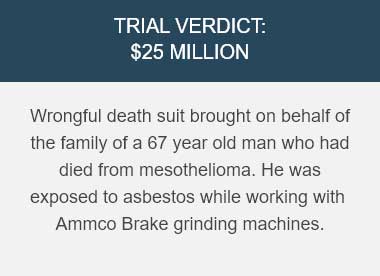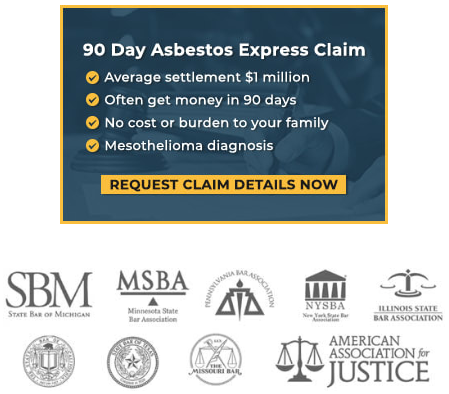Mesothelioma, a rare but aggressive form of cancer, primarily affects the lining of the lungs, abdomen, or heart. It is often caused by asbestos exposure, and its prognosis is generally poor. Understanding the mesothelioma death stages can provide families with critical information and help them prepare for the inevitable. This article delves into the stages of mesothelioma, highlighting the symptoms, care options, and support available to families during this challenging time.
Understanding Mesothelioma
Mesothelioma develops in the mesothelium, a thin layer of tissue covering most internal organs. The disease is notoriously difficult to diagnose early because its symptoms often resemble those of less severe illnesses. By the time it is accurately identified, mesothelioma is usually in an advanced stage, making treatment more complicated and less effective.
Causes of Mesothelioma
The primary cause of mesothelioma is exposure to asbestos, a group of naturally occurring minerals used in various industrial applications due to their heat resistance and insulating properties. When asbestos fibers are inhaled or ingested, they can become lodged in the mesothelium, leading to inflammation, scarring, and eventually cancer. Occupational exposure, military service, and living in areas with high environmental asbestos levels are common risk factors.
Symptoms of Mesothelioma
Mesothelioma symptoms vary depending on the cancer’s location and stage. Early symptoms may include shortness of breath, chest pain, and a persistent cough. As the disease progresses, more severe symptoms can develop, such as significant weight loss, difficulty swallowing, and severe pain due to tumor growth.
Stages of Mesothelioma
Mesothelioma is categorized into four stages, with Stage I being the earliest and Stage IV the most advanced. Each stage has distinct characteristics and symptoms. Let’s Have a look through it:
Early Stages (Stage I and II)
In Stage I, the cancer is localized to the mesothelium and has not spread to other tissues or organs. Symptoms are mild and may include slight chest pain or shortness of breath. Treatment options like surgery, chemotherapy, and radiation therapy can be effective in prolonging life expectancy.
Stage II sees the cancer spreading beyond the mesothelium to nearby tissues and lymph nodes. Symptoms intensify, and treatment becomes more challenging. However, aggressive treatments can still be pursued to manage the disease and improve quality of life.
Advanced Stages (Stage III and IV)
Stage III mesothelioma involves extensive spreading to nearby organs, tissues, and additional lymph nodes. Symptoms become more pronounced and include severe chest pain, difficulty breathing, and significant weight loss. Treatment focuses on palliative care to alleviate symptoms and enhance comfort.
Stage IV is the most advanced stage, where cancer has metastasized to distant organs. The focus shifts entirely to palliative care, as treatment options are limited and primarily aimed at relieving pain and other symptoms.
The Final Stages of Mesothelioma
Understanding the final stages of mesothelioma helps families prepare for the physical and emotional changes that accompany the end of life.
Physical Changes
In the final stages, mesothelioma symptoms near death can be severe and debilitating. Patients may experience extreme fatigue, persistent pain, and difficulty breathing. Appetite loss, significant weight loss, and fluid buildup in the chest or abdomen (pleural or peritoneal effusion) are common. Additionally, patients may suffer from severe weakness, making it difficult to move or perform basic tasks. Cognitive changes, such as confusion or delirium, can also occur due to the illness or medications. These physical changes often necessitate increased medical care and assistance to manage symptoms and maintain the patient’s comfort.
Hospice and Palliative Care
Hospice and palliative care focus on providing comfort and support rather than curative treatment. Hospice care is typically recommended when life expectancy is six months or less. It includes pain management, emotional support, and assistance with daily activities to ensure the patient’s comfort. Palliative care can begin earlier in the disease process and is aimed at relieving symptoms and improving quality of life. Both hospice and palliative care involve a multidisciplinary team approach, including doctors, nurses, social workers, and chaplains, who work together to address the physical, emotional, and spiritual needs of the patient and their family.
Signs of Approaching Death
Families should be aware of the signs indicating that death is near. These include a noticeable decline in appetite, increased sleepiness, withdrawal from social interactions, changes in breathing patterns, and decreased urine output. Other signs may include coolness in the extremities, a drop in blood pressure, and a change in skin color to a mottled appearance. Recognizing these signs can help families prepare for the final moments and ensure their loved one is comfortable. Providing a calm and peaceful environment, with familiar sounds and comforting touches, can be crucial during these last days and hours.
Communication and Decision-Making
Effective communication between family members, healthcare providers, and the patient is crucial during this time. Discussing end-of-life wishes, such as advanced directives and Do Not Resuscitate (DNR) orders, can help ensure that the patient’s desires are respected. It’s also essential to make decisions regarding hospice care, pain management, and funeral arrangements in advance.
Supporting the Family
The end of a loved one’s life is an emotionally challenging period. Providing emotional and practical support can help families cope with the stress and grief associated with mesothelioma. Practical support may include helping with household chores, providing meals, or assisting with transportation to medical appointments. Emotional support is equally important and involves being present, listening without judgment, and acknowledging the family’s feelings and experiences.
Emotional Support
Grief and loss are natural responses to the death of a loved one. Family members should seek support from counselors, support groups, or spiritual advisors to help them navigate these emotions. Sharing feelings with others who have experienced similar losses can provide comfort and reduce the sense of isolation. It is important for family members to take care of their own mental health by allowing themselves to grieve, seeking professional help if needed, and finding healthy outlets for their emotions, such as journaling, engaging in hobbies, or participating in memorial activities.
Practical Considerations
Families must address several practical matters during this time. Funeral planning should be discussed and arranged in advance to reduce stress during the final days. Legal issues, such as wills, power of attorney, and healthcare proxies, should be in place to ensure that the patient’s wishes are honored. Managing medical bills and understanding insurance coverage can also alleviate financial concerns.
As you navigate this difficult journey, it is important to have knowledgeable and compassionate legal representation. At Karst & von Oiste LLP, we specialize in serving the needs of clients suffering from life-threatening mesothelioma and lung cancer diagnoses. Our team is dedicated to helping families secure the compensation they deserve to cover medical expenses and provide financial stability during such trying times. For more information, visit our website here.
Conclusion
The journey through the mesothelioma death stages is undeniably challenging for both patients and their families. By understanding the progression of the disease, recognizing symptoms, and knowing what to expect, families can better prepare for the end-of-life process. Emotional and practical support are essential in helping loved ones cope with the inevitable loss. Remember, you do not have to face this journey alone—professional help and support are available to guide you every step of the way.







